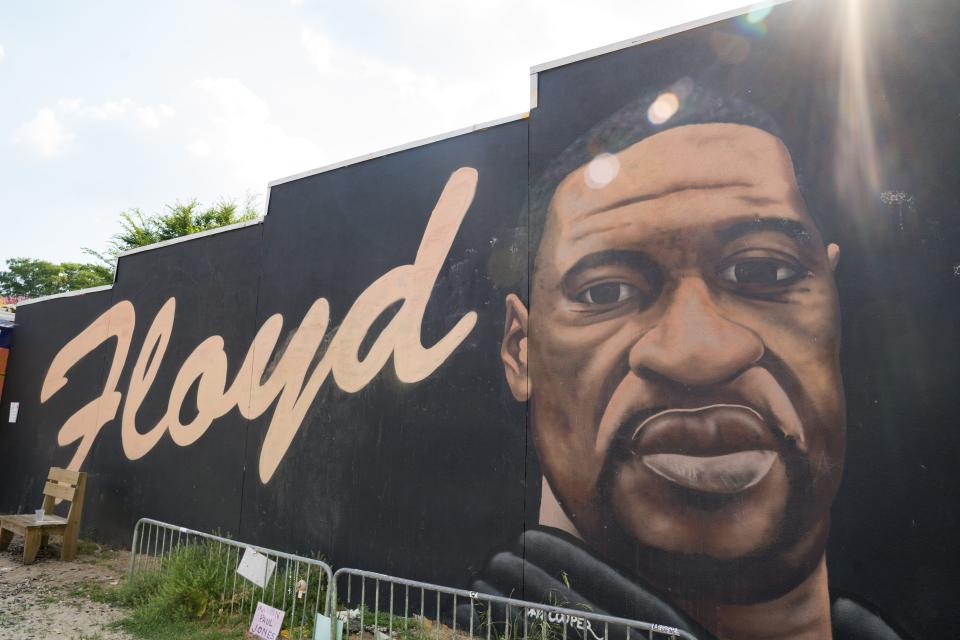Chauvin sentencing not enough. Police oversight must be put in the hands of the people.
Derek Chauvin has been sentenced to 22.5 years for the murder of George Floyd. And while some will call this step accountability, one conviction and a lengthy sentence for a slow-motion murder does not solve the underlying and insidious systemic problem of police misconduct. If that did, we wouldn’t have seen upwards of 60 people – more than half of them Black and brown – killed by law enforcement in just the three-week span of Chauvin’s trial, according to a report by The New York Times.
History tells us that very few, if any, of those other cases will see accountability in the form of a conviction or sentencing. More than 1,000 people have been killed by police each year since 2014 (and so far this year, close to 500 people), according to Mapping Police Violence. But over the past 17 years, only 140 officers have been charged with murder or manslaughter in fatal shootings, according to a Vox report. Less than a third of those were convicted.

Cops with extensive histories of misconduct – just as we saw in the case of Chauvin – are allowed to remain on the job, influence people’s liberties and tragically take the lives of others. Powerful institutions and bureaucratic processes – from arbitrators to state laws to union contracts – shield police records from public view and unduly impede consequences for police misconduct.
In over-policed communities most impacted by police misconduct, reform is a matter of life and death. And while we hope the Biden administration will help fuel federal efforts to promote the transformation of policing, the reality is that we already know one fundamental way to improve policing and respect the community’s voice, and it doesn’t require federal action – for police accountability to become the expectation and not the exception, we must put it in the hands of the people.
Empowered civilian oversight of law enforcement empowers the community to be an engaged participant in reviewing law enforcement conduct and propelling reform. It is long overdue in many communities, and in need of fortifying in those places where it does exist. Community oversight can take several different forms, from investigation of individual complaints of misconduct to review of systemic patterns within agencies.
Effective and empowered civilian oversight can be a vital tool to begin to address unmitigated racial bias in policing, from disparities in police shootings to over-policing of communities of color. Across the country, Black and Latino adults are respectively over five times and nearly three times more likely to be incarcerated than white adults.
SUBSCRIBE: Help support quality journalism like this.
Many jurisdictions across the country already have civilian oversight mechanisms, but too often they are neither effective nor empowered. Civilian oversight entities need independence and teeth in order to make a difference and truly serve as an outlet for the community’s vision for change. They should be independent from law enforcement agencies and elected officials.
A 2012 study found that the New York Police Department followed the recommendations of the Civilian Complaint Review Board in only about 10% of 258 cases. And a survey of oversight agencies found that less than 50% indicated that law enforcement leaders frequently implemented their recommendations. These statistics undergird a common structural failure: Many civilian oversight mechanisms lack the authority to hold officers who have been found responsible for misconduct accountable.
When misconduct is investigated and substantiated, the law enforcement department should be required to follow the guidance of these bodies as to discipline of the officer, remedying deficient investigations and addressing systemic practices that facilitated and enabled the misconduct. One potential model is for the review board's recommendations to create a floor that police leadership can go above, but not below, in deciding sanctions. To allow for thorough and complete investigations, oversight entities should also have unfettered access to police records, as well as subpoena power. Moreover, to propel structural reforms within law enforcement agencies, oversight entities should have the authority to investigate systemic patterns, policies and practices.
These safeguards – among others – are necessary to promote effective and meaningful civilian oversight. And communities understand this. In the 2020 election, voters in six states increased the power of civilian review boards, including giving them subpoena authority.
To be clear, good cops have nothing to fear from civilian oversight. Increased transparency and accountability lead to better relationships and enhanced trust with communities. And these improved relationships lead to more crimes being solved and safer streets. Furthermore, effective civilian oversight ensures that police leaders can weed out bad cops who cast a shadow over the entire department.
Of course, empowered civilian oversight of law enforcement is not a panacea for the harms of police violence and mass incarceration.
Broader transformation requires shrinking the footprint of the criminal legal system, and promoting deep investment in community health, infrastructure and transparency. But effective and empowered civilian oversight of law enforcement is a vital first step toward developing a holistic, shared vision of public safety, co-owned and co-created by the community, and will go further in repairing and addressing the harms wrought by police misconduct than any single case or sentence ever will.
Miriam Aroni Krinsky is the executive director of Fair and Just Prosecution and a former federal prosecutor. Brendan Cox is the former police chief of Albany, New York, and the director of policing strategies for the LEAD National Support Bureau.
This article originally appeared on USA TODAY: Chauvin sentence not enough. Public needs power to oversee police.

